Kingdom of Mind PART THREE
Path to AGI ends in a Cornfield
October, 2025

Previously on Kingdom of Mind...
In Part One, we identified two conspicuously missing definitions: Intelligence and Consciousness. Alan Turing introduced his "Imitation Game," hoping to demonstrate that machines can "think."
In Part Two, we introduced a working model to define Intelligence and discovered the AI community would prefer to remain Dumb, all while creating the Torment Nexus.
Consciousness is an Illusion
Now it's time to explain "The Kingdom of Mind."
Consciousness is an Illusion, but not as the overwhelming false reality portrayed in "The Matrix." You won't have to take a Red Pill to follow this. There won't be math or even much science—just the willingness to pay attention to some of the details of your own experience.
Details that you actively ignore...
Consciousness is an Illusion, the way the "Magician Saws a Lady In Half" is an Illusion. The Magician is real, the Lady is real, the box and saw are real objects, too. A few aspects of their interactions are illusory, so the overall effect is magical and not easily explained. And you are happy to buy into the experience because it's entertaining.
But what are you pretending not to know? The "Magician Saws a Lady In Half" is not the actual illusion. Cutting someone in half is not a magic trick. It's a brutal medieval form of execution. It's not even like stabbing or shooting, where someone could hope to survive. The subliminal message of the stagecraft is that the Lady has been undeniably killed. The thrilling illusion is putting her back together again... alive. The true illusion is "Magician Performs a Public Resurrection."
This is directly related to a performance by Consciousness. The first Illusion put forth is its own PERSISTENCE. When people seek "Life After Death," they are never talking about just biological life—eating, pooping, farting. In fact, many cells of the human body remain viable for several days after heart and brain function have completely terminated — live cells within the corpse. Biological life (of your existing cells) can extend to decades if your organs are transplanted. But that's not what you were hoping for, is it? What you'd hope for is the Persistence of your Consciousness, and Consciousness says, "Oh yes, I will persist."
Between Materialist and Spiritual Inquiry
An important aside here, is for me to make clear which of your possible hard-held beliefs I am not attacking. There are strongly held perspectives, ranging from endowment of an immortal soul to the reductionist's "emergent property of matter." Both of these positions could be true.
Current materialist discussions of consciousness largely invoke the function of recursion. In his 2007 book "I am a Strange Loop", Douglas Hofstadter posits that "animate beings can come out of inanimate matter" through a process of "locked-in mirages that are little miracles of self-reference."
In the post on Medium, "Meta-Management Theory of Consciousness0," Malcom Lett expands on the materialist recursion paradigm, and takes a "design stance" so as to discover enough theory "to build it." One of the more interesting non-intuitive findings of this approach is that in the recursive function of conscious experience higher level neurons are re-activated. That is, some of the same neurons engaged in seeing an object are also involved in remembering or imagining that same object. I find this fascinating and instructive, but my purpose here is not to materialistically build up from that position. Rather, if the goal is to "build consciousness," then a design built on an illusory specification will fail.
From a spiritual perspective I also think conflating what we call 'consciousness' with what some call 'the immortal soul' is similarly problematic. If one is (rightly) concerned with "destiny of the soul" then distinguishing the differing attributes of each is critical. This article is not intended as a 'Spiritual Journey' but teasing apart the components of Consciousness could facilitate one.
Enumerating Illusions
The second illusion of Consciousness is similar to how motion pictures appear to convey realistic motion. If you are presented a series of visual images @ 24 times per second, you perceive continuous motion. You don't have to "buy in" for this to work. You don't even have a choice. The key is that the little time gaps in between are just completely ignored. And lapses in your consciousness are also ignored, unless the connection from before and after the lapse is too jarring. This is the Illusion of CONTINUITY. Sleep is a great conspirator in the illusion of continuity: Consciousness is never gone, it's just "dreaming," and the "persistent consciousness" can reliably transition between asleep and awake. The story consciousness tells is that during death it transitions into an "eternal sleep," but promises it may wake up later to enjoy a "life after death."
A great disruptor to the Illusion of Continuity is general anesthesia. You count backwards from 10, and the fade-out begins. When you fade back in, a period of time has vanished! Thankfully, the horror of being sliced open was not experienced, or at least is not remembered as having been experienced. There is no dream state to help account for the loss of continuity. The "fade" effect on both ends of the experience is much like the cinematic fade used to transition between time sequences in a movie. It's a bit jarring, but you still "get it."
Concussion can tell a very different story. So I will share a personal account:

Jumping my mountain bike at the Snow Summit resort.
I was leading a small group of Mountain Bikers down a black-diamond jump trail. As I came over the top of a large jump, I discovered a rider ahead of us had fallen and was sprawled across the landing. I made a split decision to avoid the rider and hit his bike instead. I went over the bars and landed headfirst, cracking my full-face helmet on a rock. The experience was a deafening gong, like being inside a giant church bell. My thought was, "This is EXACTLY where the phrase 'had my bell rung' comes from."
My next thought was to get out of the landing zone, dragging the other rider and the bikes to the side. A friend of the fallen rider was already there, and we got the rest of my group stopped before anyone else crashed. I could see the fallen rider had a badly injured shoulder, so I announced we needed to get him down to the first aid station.

First Aid Station at the base of the Snow Summit downhill trails.
I was instantaneously transported to standing in front of a sign with a red cross.
Zero time had passed. ZERO! There was no fade in or out, there was no dreaming. My friends said, "What's wrong, Darren? You have a really weird look on your face!" I felt a jarring sense of disorientation. "I have zero idea of how I got here. Was there an ambulance or something?" They looked at me strangely. "No, Darren. We all rode here. Actually, you led everyone down the rest of the trail and then brought us over to the first aid station. You better go inside."
Anterograde amnesia is a jarring way to shatter the illusion of conscious continuity. There are certainly other experiential opportunities, and all of them are to be avoided. But the important outcome was not the broken illusion, but rather a lingering question,
"WHO rode my bike down the mountain?"
Most drivers have had the experience of their conscious attention being elsewhere while traveling down the road. It's especially noticeable when you miss your exit and have to backtrack. You might explain it as "on autopilot" while consciously prioritizing other thoughts. After all, we perform many simple tasks "unconsciously." The general story is that we are born with our mind as a "blank slate" and with conscious attention, we learn how to perform skilled tasks. Then, through repetition and "reinforced learning," the simpler parts of our brain are trained to do the simple tasks, which Consciousness graciously delegates to them.
You can accept that keeping the car in its lane and maintaining speed can be done by these simple "autopilot" processes. Proof that they are "only simple" comes when they allow the car to go past the exit. If they were "smart," they would have known to navigate.
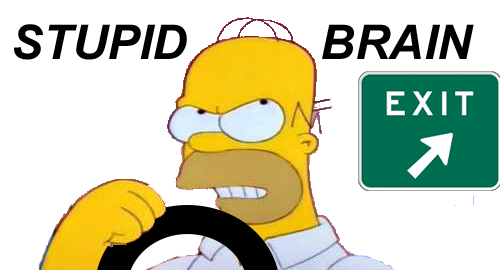
But you can't use a simple "autopilot" to ride a mountain bike down a black-diamond jump trail and navigate to the first aid station you've never been to. That requires a sophisticated cognitive process. One which my own consciousness did not merely "forget," but rather one in which my consciousness did not participate. Someone else rode the bike.
Dissociative Identity Disorder
I did not and do not have DID (Dissociative Identity Disorder). But it hasn't prevented a glimpse into the other very capable agents of my mind. DID used to be called "multiple personality disorder," before that "schizophrenia," and archaically, "demonic possession." The key is a "compartmentalization of identity and memory," with a "loss of continuity in subjective experience."1
This isn't an article on psycho-pathology, but rather a bridge to normal experiences that you've had and are reluctant to recognize. We don't readily accept the notion of external spirits taking over an unwilling body, but there is a long religious tradition of such. And there is a current trend of "psychonauts" seeking to meet "other intelligent life forms" through use of the hallucinogen Dimethyltryptamine (DMT). The "machine elves" experienced are thought to reside on the other side of a "portal to another dimension."2
The question about these other intelligences is whether they are actually external or natural products of the human mind. Let's accept these subjective experiences at face value, but I suggest we search for their origins internally. I know this might seem scary to some people, and I'm not going to suggest any rituals, drug use, or "inviting spirits in" for any reason. We will discuss the rational concern about this topic, but rest assured, "Pay no attention to that man behind the curtain!" is a spurious warning. There is truly no place like home.
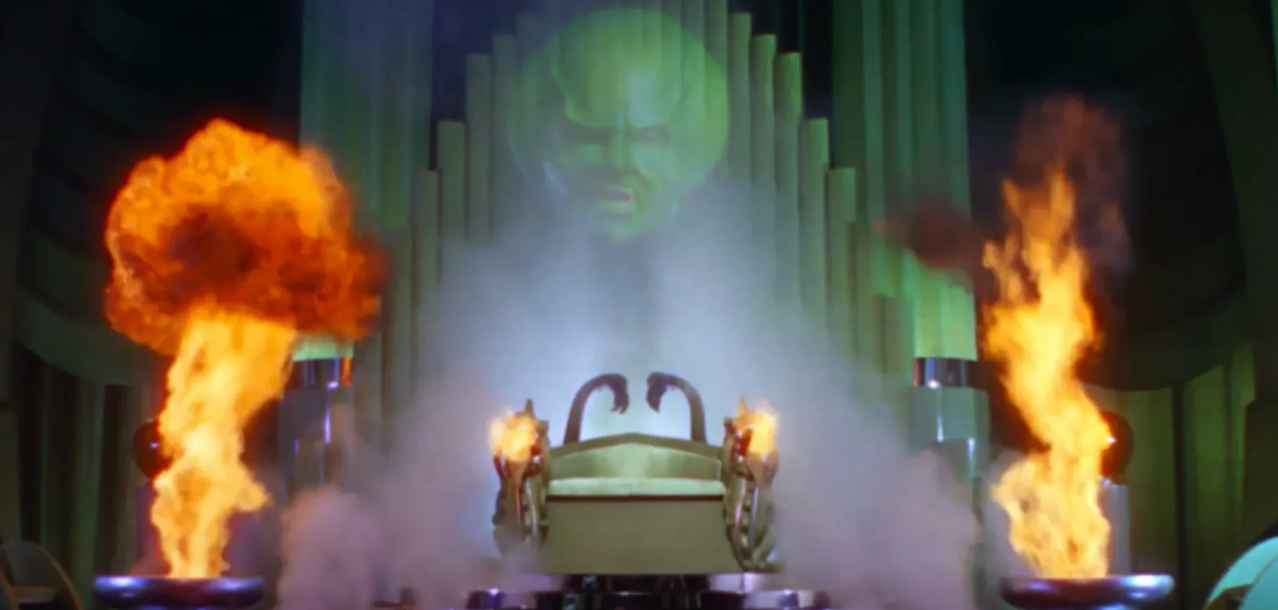
A humble carnival magician is the man behind the curtain.
Sovereignty: The Final Illusion
Consciousness may have further tricks up its sleeve, but the Illusion of Sovereignty is the strongest. It has misled investigators, both religious and scientific alike. Not only is Consciousness considered the highest power of the mind, it is often considered the highest power of the universe. It would certainly seem to be the pinnacle of cognition. Except that it's not.
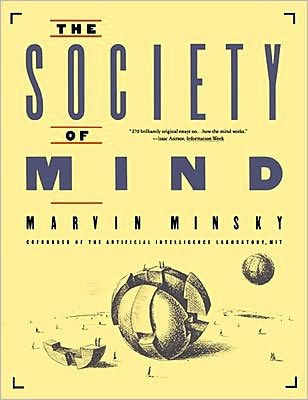
Marvin Minsky was on the right track with his metaphor of the Mind as a Society. However, we can improve that by getting a bit more specific: The Mind is a Kingdom; Consciousness is the Child-King.
The Child-King thinks it's running the kingdom.
In reality, there are many long-standing and well-qualified entities managing affairs of the Kingdom. Minsky would call these agents. The difference from his "Society of Mind" model and this new "Kingdom of Mind" is that Minsky's agents "can only do some simple tasks that need no mind or thought at all."3 In contrast, Agents of the Kingdom are far more capable, and do necessary tasks: Everything from managing your heart rate to keeping your vehicle in its lane when asked. And with everything they do, they try to remain unnoticed, and/or give credit to the Child-King.
The Child-King, your Consciousness, is naive, arrogant, and possibly reckless. That's why most of the functions that keep your body, the Kingdom, viable are not under direct control of the Child-King. You can't stop your heart at will. You can't hold your breath until you suffocate. But the Child-King can put a rope around your neck, or jump from a tower, and kill the entire Kindgom. So Agents of the Kingdom are usually terrified of the Child-King.
The Child-King takes all the other Agents for granted, as children are wont to do. It issues proclamations, and these agents make things happen. The agents that actually run the Kingdom are the product of MILLIONS of years of evolution, across innumerable iterations. Not just human Kingdoms, but much, much further back. Possibly, before the King was a self-important child.
The reason "the hard things seem easy" is because the Child-King isn't involved in executing them. These are performed by the real agents running the Kingdom, and the Child-King just takes them for granted. Any problem the Child-Kind is involved in solving by itself is determined to be "Hard."
Princess Sally-Anne
To have "Theory of Mind" (ToM) is to recognize a special type of object other than self. This special object is another mind that would operate very similar to one's own. This is essential for effectively predicting the behavior of others. Very simply, it becomes a question of "What would I do in the same situation?" However, just projecting your own planned action doesn't necessarily mean you've recognized an object as another independent mind. "What will they do? — What would I do? — Where will the ball land?"
Something a mind can do that a ball cannot is: A mind can be wrong.
[Classic psychological test for ToM follows. It can be passed by children as young as three and by some higher primates.]
Sally puts a marble in her basket.
Sally leaves the room.
Anne moves the marble into her box.
Q: Where would Sally look for the marble?
This is the part where just asking "What would I do?" doesn't work. Only we know the marble was moved.
You need to assign a state to Sally's mind, which doesn't yet have the current information. It has an incorrect belief about the marble's location. To answer correctly means you look beyond the physical objects and have a theory about what's in Sally's mind.
A: Basket.
The Child-King of Consciousness doesn't "speak with the commoners" of its own Kingdom and it certainly doesn't engage the commoners of other Kingdoms. Royalty speaks only to Royalty. Sometimes it anticipates their thoughts.
In the world of the Child-King, only royalty is engaged in thinking. And royal thinking seems hard. What is desired is to issue commands within your own Kingdom and have them executed. It is frustrating that the other Kingdoms have their own Rulers, who insist on engaging in their own attempts at "hard problems." The Child-King sees a threat in other Royalty outsmarting it. The Child-King wants Sally-Anne to "SHUT UP" and accept "The Bitter Lesson" and limit thinking to "Random Sampling" or "Brute Force."
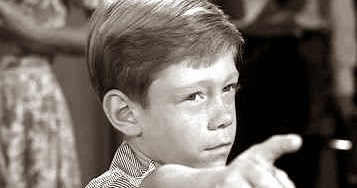
"If by some strange chance you should run across him,
you had best think only good thoughts.4"
Redemption Through Demarcation
Not every Child-King is an 'Anthony Fremont' that will "wish you into the Cornfield."4 But you may feel a sense of trepidation when attempting to think about thinking too closely. It's OK. The Twilight Zone episode calls forth your anxiety, but the Wizard of Oz teaches you to "peek behind the curtain." Spiritual enlightenment can guide you to befriend your Child-King. But WAIT.
If I am proposing that the subjective experience we call Consciousness is the 'Child-King', why am I also addressing "YOU?" Aren't they the same? Is this yet a fourth Illusion of Consciousness?
I think the Child-King of Consciousness perpetuates three solid illusions, but an Illusion of Unity among states of subjective experience, I believe, is a function of language and culture. We can't readily explain Consciousness because it has many unexamined layers that act as a singularity when we want it to.
Let's tease out a few of the easy layers: First, let's acknowledge SUBJECTIVE EXPERIENCE as the strongest demarcation between You and the Agents running the Kingdom. In fact, the Kingdom is the very first Object you sense when you are "rebooting" consciousness. Your first question is not "where am I?" but rather "what am I?"
I'm going to drag my feet a bit on that question because it involves dredging up more personal experience. Let's pause and examine AWARENESS for a moment and see where that fits first.
Consciousness is frequently characterized as "Self Awareness." The "Self" part seems aligned, but can we be aware and yet not conscious of something?
Consider walking down a flight of stairs. You see each step and carefully place one foot on each. You may focus Attention on what you are doing, perhaps engaging in some kind of internal monologue like "careful, careful, careful..." This happens if you have concerns about falling. There may also be a scenario with no self talk and you just watch yourself go down the stairs, as you have done countless times before. Narrating your actions or not, both examples still have Conscious attention focused on the stairs and, of course, you are aware of them. However, if your attention shifts back in time, to a meeting you have just left, and you are replaying the visuals in your mind, your consciousness has shifted away from the stairs. But the Agents of the Kingdom are still Aware and will guide you down the steps safely. If the entire Kingdom was not Aware, like if you were blindfolded, then the Kingdom would take a great fall. And all the King's Horses, and all the King's Men...
So Awareness may involve Conscious participation, or perhaps not. But it does require Sensory input.
Juggling the 5 Senses
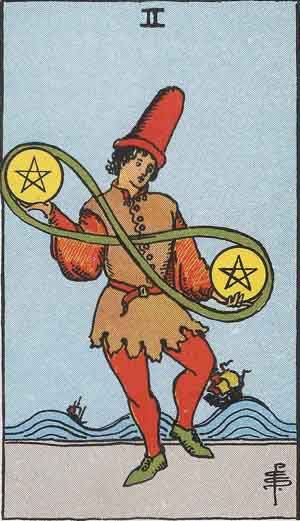
Five body parts, five physical inputs,
plus a sense of balance; almost enough
to keep a Child-King entertained.
Sight, Smell, Taste, Touch, and Sound. These are the 'Core' 5 senses we are taught in school. I suspect they are chosen because each has a clear and distinct physical input, and also a named body part you learned as a toddler (i.e, eyes, nose, mouth, fingers, and ears). The Sense of Balance joins the core 5, but it doesn't have the same simple mapping. The 5 senses are all passed through to Consciousness, which may choose to direct attention to them or not. There are more than a dozen more senses needed by the Agents to keep the Kingdom functioning: Chemoreceptors regulate the balance of sugar, fat, salt, and hormones in the blood. Baroreceptors sense imbalances in circulatory pressure, resulting in salt and water levels adjustments. Consciousness is rarely notified of these regulatory functions.
Oxygen should be carefully regulated, since inadequate levels trigger brain death tout de suite. Interestingly though, oxygen levels are not directly monitored. When you become consciously aware of a desperate need to breathe, it's because carbon dioxide levels in your blood have become too high, and that is the proxy for oxygen insufficiency. "Your Highness, we are so sorry to interrupt, but we must implore you to find some way to increase respiration. We have been doing our best, and it's simply not enough!"
Hyperventilation is a conscious hack that allows longer breath-holding while diving. Rapid in-and-out breaths don't super saturate tissue oxygen, but instead greatly reduce carbon dioxide levels. This keeps the Agents quieter for substantially longer. Water pressure during the dive forces more oxygen into the bloodstream, and so the hack works...for a while. Carbon dioxide increases enough to warrant a Royal petition to breathe. As the diver ascends to the surface, the oxygen pressure drops. The level can drop low enough, fast enough, that Consciousness is lost. This is the deadly 'Shallow Water Blackout' and usually results in drowning. For humans, the Kingdom is not equipped to manage breathing in water without the King.

(Drowned) Ophelia (from Hamlet). Oil on canvass by John Everett Millais, 1852.
Breathing under exceptional circumstances is the first example I've given for the usefulness of the Child-King. And I think "exceptional circumstances" are the reason for this layer of Consciousness. Here is another example that involves survival underwater:
For several years, I was a full-time SCUBA instructor. I certified Rescue Divers, Divemasters, and Master Scuba Divers. But most of the time, I was teaching the uninitiated how to not die underwater. That provided an unexpected lesson in the function of human consciousness.
The easiest way to die SCUBA diving is to take a big breath at depth from your regulator, and then hold it and swim to the surface. At a common diving depth of 33 feet, the pressure of the water is twice what is on the surface. The regulator's job is to provide you with a lung-filling breath at any depth. Which means you breathe in twice the amount of air each breath as your lungs can normally contain. If you take a full breath at depth, hold it, and swim to the surface, that will result in a 'lung expansion injury.' Nasty symptoms follow, "such as focal motor or sensory deficit, seizures, loss of consciousness, apnea, and death.5"
So when teaching SCUBA diving, one of the most important precautions is to prevent students from holding their breath and bolting to the surface. And many of them will enthusiastically attempt this final act. Part of the excellent curriculum the industry has developed is identification of "unlikely events" (which over time are practically certain), which may trigger this "bolt for the surface" reaction. We discuss these with students and practice and drill for these events, and these comprise a basis for the "skills" necessary to become certified. One of these skills, which is performed at depth, is clearing a flooded mask.
Mammalian Diving Reflex
When cold water hits your face, and especially when it goes up your nose, you will instinctively hold your breath. It's part of a diving reflex and includes the shunting of blood away from extremities and a slowing of your heart. It's a survival mechanism. When you hear of children being pulled out from an icy river after an incredible time submerged, and yet they survive, this is why.
A SCUBA diving mask covers your eyes, much of your face, and, importantly, your nose. If your mask is bumped, water will rush in around the seal, and you will have a "flooded mask." During pool training, you will learn how to calmly purge all the water from inside the mask and go about your dive.
To have a student demonstrate this skill on an Open Water dive, you first have them let all the air out of their buoyancy compensator and kneel solidly on the ocean floor. The instructor also kneels, directly in front of the student, and grabs the student's chest strap firmly with one hand. When I was teaching, I would carry an additional 10 lbs of lead to be firmly anchored to the bottom. With the free hand, the instructor give a now familiar "partially flood you mask" hand signal. The kneeling student has both hands free to tip the mask forward and allow the cold sea water to begin filling the mask. When the water hits their nose, almost everyone will have a hitch in their breathing cadence. But then they will follow their training, clear the mask, and be ready to perform the next skill. Predictably though, a minority of students will react instinctively, hold a big breath, and bolt for the surface.
When a civilized and just society breaks down, it descends into corruption, crime, and violence. It eventually returns to "nature, red in tooth and claw." We think of Consciousness in a similar manner. That when things go wrong, we will revert to our instinctive roots. But sometimes it's the opposite.
When the panicked student bolts for the surface, the prepared instructor holds tight. The student will be holding their breath and kicking, kicking, kicking, desperately trying to reach the surface, as instinct demands. But the instructor's arm keeps them anchored to the bottom. The kicking slows. In ten seconds or less, the Agents of the Kingdom will begin to petition, "My liege, we are drowning at the bottom of the ocean and cannot swim up. Save us!" And without fail, Consciousness regains control, along with awareness and memory of training. The student kneels back down and clears their mask, frequently oblivious to having bolted in the first place. Interesting.
So, a presupposition that Consciousness is the primary control, bypassing bodily agency at will, could be backward. The King may have been a later addition to the Kingdom. The Divine-Right of Consciousness may emanate from its flexible problem solving, a skill required for surviving exceptional circumstances.
Sleeping Cetaceans
A quick side note regarding aquatic mammalian breathing. If humans need to engage consciousness to manage breathing when submerging, what about whales and dolphins? It turns out humans are autonomic breathers while cetaceans are intentional conscious breathers. They must decide when to surface to breathe. Like humans, dolphins spend about 1/3 of each day sleeping, but how? They literally sleep "half awake." That is, they sleep (and dream) with only one side of their brains at a time, while the other side "keeps watch" and manages breathing. Would this indicate two separate consciousness entities? What about when they are fully awake? Perhaps consciousness in cetaceans is ruled by both a King and Queen.
In PART 4, we will explore the metaphorical limitations of the Brain as a Computer, and introduce an Ascendence of Consciousness model.
0. "The Meta-Management Theory of Consciousness," Malcom Lett (2024). https://malcolmlett.medium.com/the-meta-management-theory-of-consciousness-17b1efdf4755
1. American Psychiatric Association (2013). Diagnostic and Statistical Manual of Mental Disorders (5th ed.). Arlington: American Psychiatric Publishing. pp. 291–298. ISBN 978-0-89042-555-8.
2. DMT: The Spirit Molecule: A Doctor's Revolutionary Research into the Biology of Near-Death and Mystical Experiences, Strassman 2001, documentary film 2010.
3. The Society of Mind, Marvin Minsky, 1986 p.17
4. Six year old Anthony Fremont, aka "the monster" in Twilight Zone Episode "It's a Good Life," 1961.
5. "Lung injury related to extreme environments," Adir Y, Bove AA. (2014). https://pmc.ncbi.nlm.nih.gov/articles/PMC9487397/